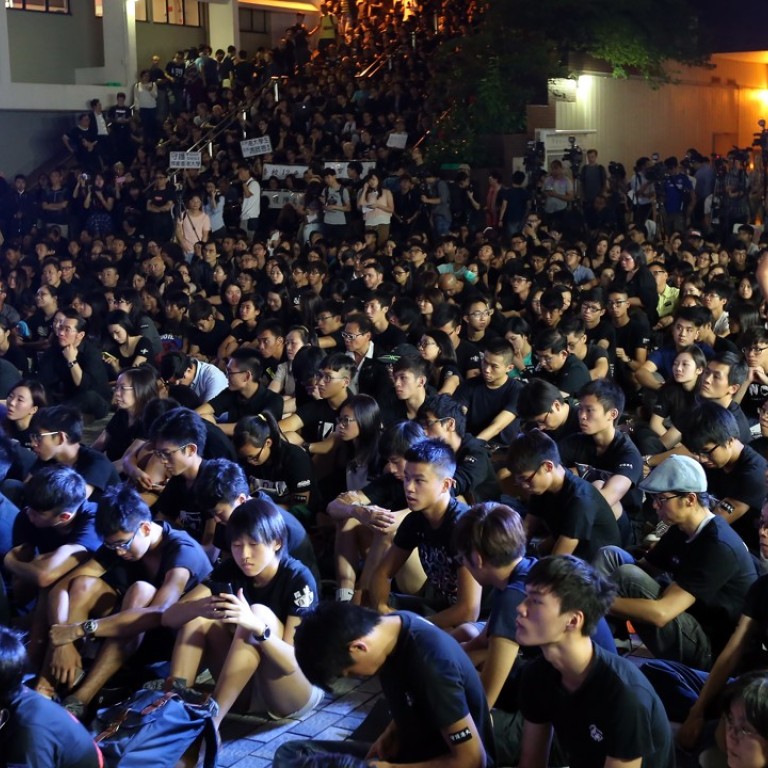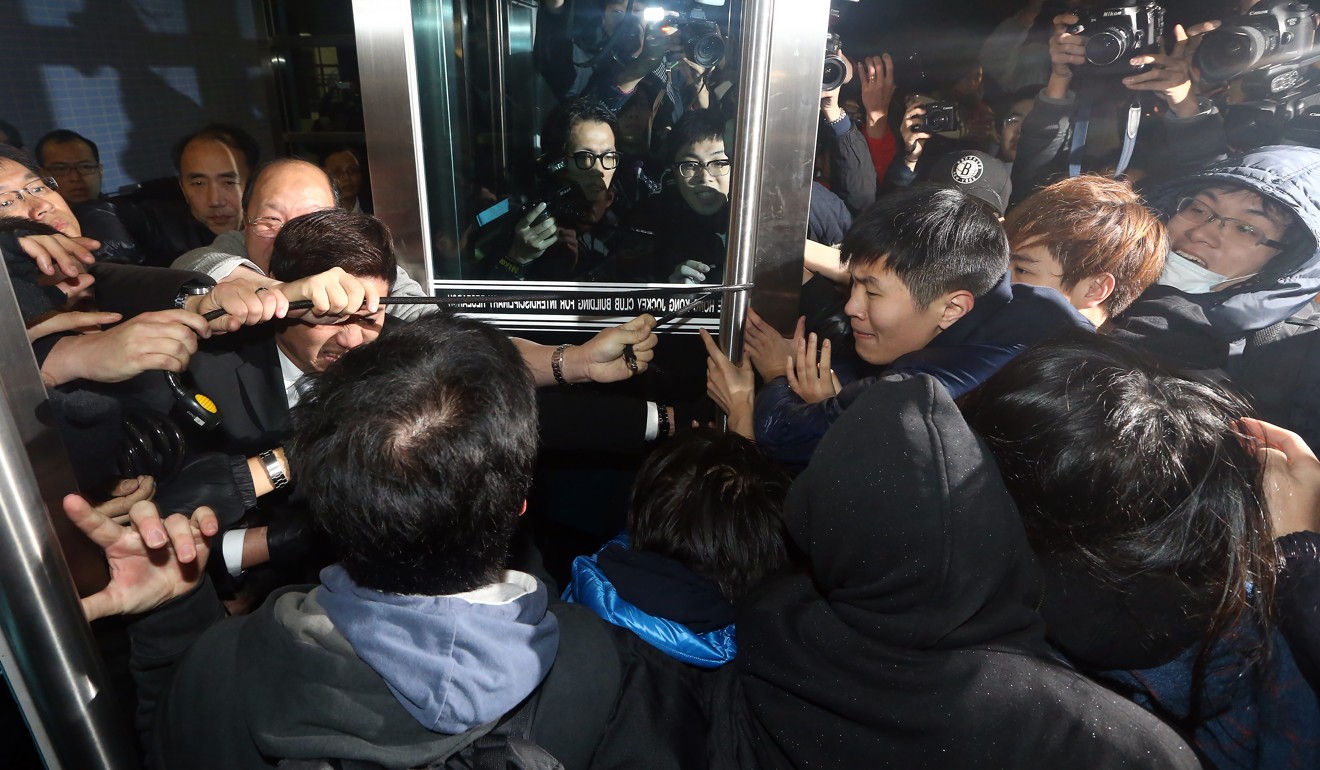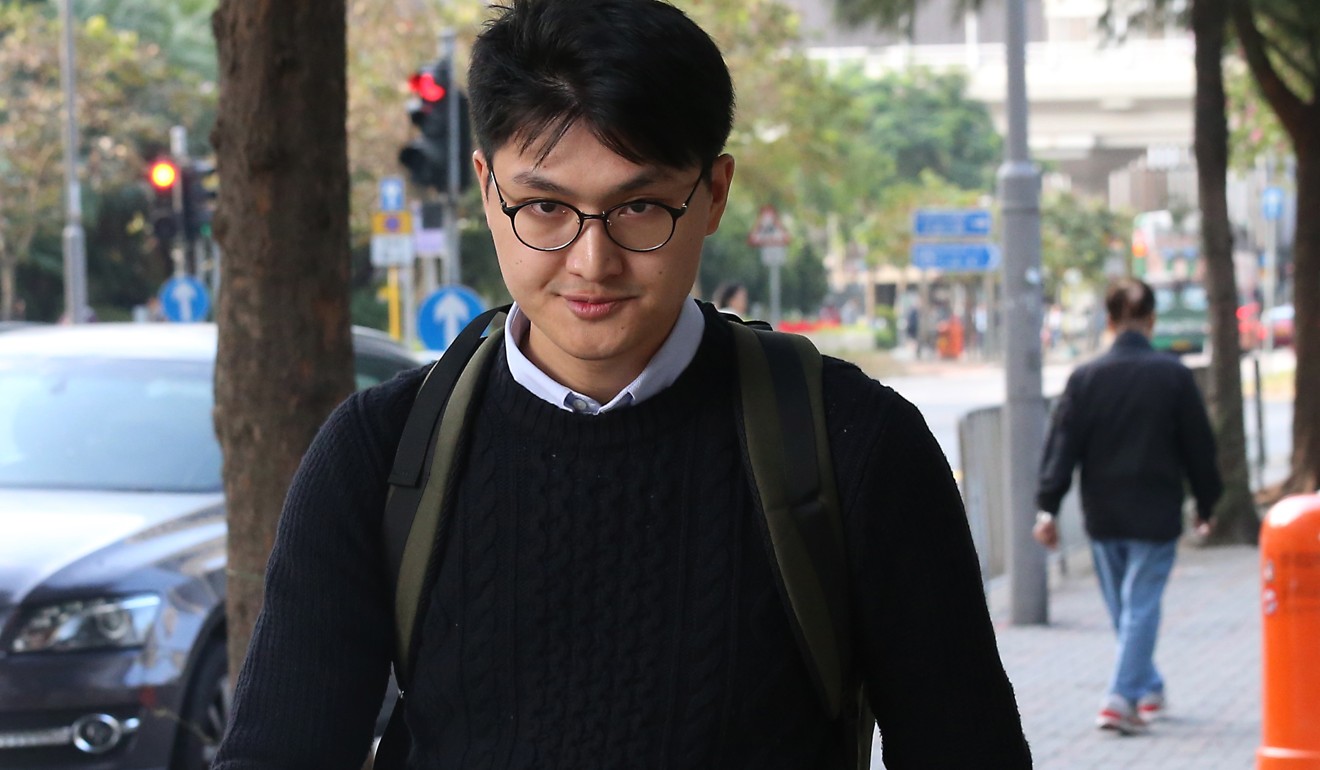
Student support not needed for disciplinary code review, HKU governing council says
Working group’s comment counters suggestion by review panel in aftermath of student protests over controversial issues
The governing body of the University of Hong Kong has said it will not let students stand in the way if it has to review the disciplinary code addressing violence at protests on campus.
The HKU governing council’s working party released its report on the panel’s recommendations on Tuesday night, indicating that it would engage students, but stating that their full support on such matters pertaining to discipline was not necessary.

The controversial issue has previously led to violent disruptions at the council’s meetings last year.
“It’s simply impossible if full support [of student representatives] is needed to discipline other students,” said a member of the working party who asked to remain anonymous as he was not authorised to speak on behalf of the group.
Regarding ways in which students will be engaged, the member mentioned possible examples such as public consultations. He added: “There are many ways to handle violent actions in criminal activities and I think the most radical time has passed.”
According to a university statute, its disciplinary committee will investigate if a student is alleged to have committed assault or battery against any member, or wilful damage to any property of the university, and decide on penalties from reprimand to expulsion for those found guilty.
However, the review panel was told that the terms are insufficient – and do not extend to non-students – to consider the behaviours of individuals in the violent episodes of disruption at council meetings.
In January 2016, hundreds of students and protesters broke into a council meeting, some jumping on tables, and blocking the exit of members. They were calling for reforms to the chancellorship arrangement.

The review panel suggested that extending the disciplinary code would allow the university to handle a wider range of less serious incidents internally, so that students would be less likely to earn a criminal record.
Mak Tung-wing, deputy convenor of HKU Alumni Concern Group, said he agreed with the panel’s recommendations because the disciplinary committee statutes were introduced to the university’s ordinance with full support of five student representatives back in the 1970s. He said that if the code was to be reviewed, the discussion and persuasion process would make all stakeholders better understand limits of actions on campus.
“More conflicts are expected in the coming two to three years,” Mak said.
“Handling disturbances on campus by people who are more familiar with the school and that are specialised in dealing with students, are in principle, better than calling in the police – a move which has long been considered high-handed.”
But the source from the working party said they did not spend much time discussing the need to extend the code when they went through the 53-page report. A spokeswoman said the university has no comment on whether there was a plan to review the disciplinary code.

